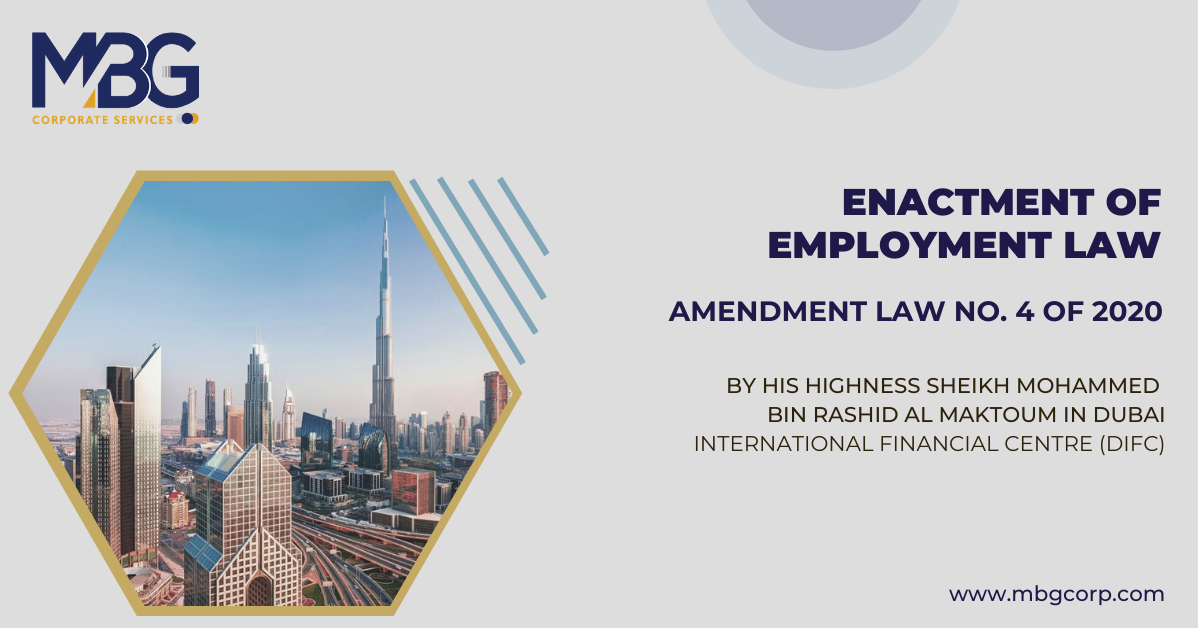New DIFC Employment Law – Effective from February 1, 2020
January 20, 2020

Enactment of Employment Law Amendment Law No. 4 of 2020 in Dubai International Financial Centre (DIFC) by His Highness Sheikh Mohammed bin Rashid Al Maktoum
DIFC has recently introduced the Employment Law Amendment No. 4 of 2020 (new Employment Law) under the new qualifying scheme which is in regards to workplace savings scheme in DIFC, changing the current end-of-service gratuity payment method to provide the employee their final benefits which has been followed since 2004.In accordance with the new Employment Law, effective from February 1, 2020, companies incorporated in DIFC shall provide mandatory monthly contributions to a professionally managed and regulated savings plan.
DIFC authority’s Board of Directors has also issued the new employment regulations that set out the requirements for qualifying schemes. Entities will have time until March 31, 2020 to enroll in the same. These include the DIFC Employee Workplace Savings (DEWS) Plan. Alternatively, employers may seek a certificate of compliance for an alternative qualifying scheme under the regulations from the DIFC authority.
Other key variations of new Employment Law include:
- allowing employees to make voluntary workplace savings contributions into the qualifying scheme additionally to the mandatory monthly contributions provided by employers in accordance with the New Employment Law;
- ensuring that any accrued end-of-service benefits under the current regime remain in place, also providing employers with the option to pay these accrued benefits into a qualifying scheme;
- settling the mandatory contributions to be made by employers at 5.83 per cent of monthly basic wage (for employees who have less than five years' service), and 8.33 per cent of monthly basic wage for employees who have longer service;
- creating exemptions for certain types of employees, such as those on secondment in the DIFC such exemptions are applicable to short-term workers, equity partners and/or employees working for government departments and bodies that have a presence in the DIFC and others;
- creating exemptions for international institutions that have a statutory obligation to make pension, retirement or similar contributions on behalf of their employees elsewhere, as well as for employers who wish to provide a regulated defined benefit scheme to their employees that provides for benefits in excess of what the mandatory defined contributions are under the DIFC employment law.






